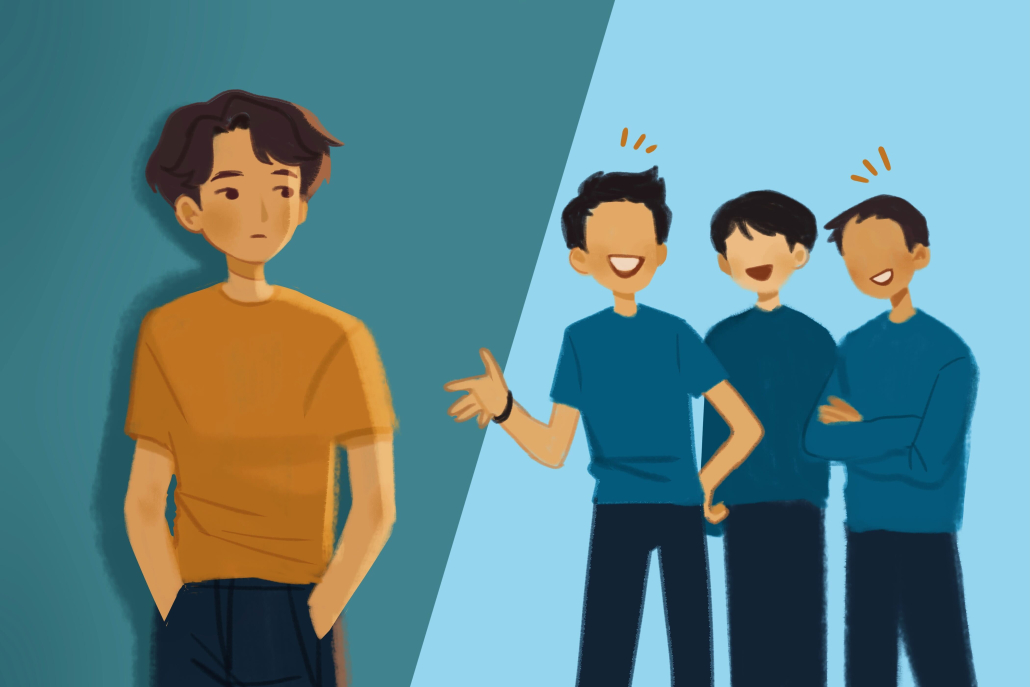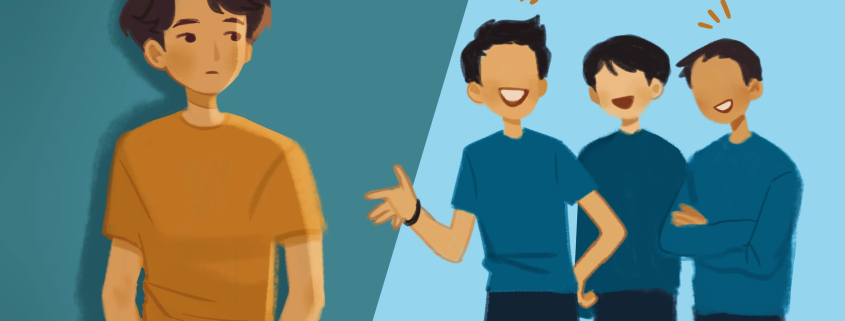Battling racism within my own community

As an Asian Australian, I was excited to move to California because I had heard it was more welcoming, diverse and inclusive. Based on narratives from my friends and from what I saw on social media, it seemed as though people were more aware here — it’s not perfect, but dialogue actually exists regarding being racially informed and sensitive to various marginalized communities. In comparison to my home city, I felt that Los Angeles had more prospects in terms of diversity.
However, once I actually arrived in California, not all my expectations were met. While diversity is present — with the Asian population making up 14 percent of L.A. County — racism continues to be perpetuated both by the white majority and those who are marginalized themselves.
While rushing for a fraternity, I found someone who looked like me. I thought that we’d have some sense of assumed solidarity since we were both Vietnamese people in a white-dominated space. That seemed true at first. He would take every opportunity to tell anyone that happened to find us together that I was Vietnamese too. He treated me differently from the other pledges — at times, it felt like it was to track my whereabouts. This was where all the dots connected. It seemed like he thought that he owned me and felt entitled to my time and presence, simply because I was also Vietnamese. For a guy so obsessed with my ethnicity, I wondered if he forgot his own. His faux-advice and back-handed compliments exhausted me until I ended up leaving the fraternity.
Afterward, I felt alone and surprised, and found the whole situation so absurd. Why would a Vietnamese person, who I’m sure had the same questions as I had about their identity, be stepping on top of me like this? I realized this was part of a greater phenomenon — it’s a systemic issue that arises from white dominance.
As Pulitzer Prize finalist Cathy Park Hong writes in her book, “Minor Feelings: An Asian American Reckoning,” the view that she seemed to hold was that you, “[see] yourself the way whites see you.” This view leads you to fight and vie for the spot of white validation. You are tricked by the promise of acceptance, only to find out that when you get it, you become a pawn and the laughingstock. The only real winners who gain in this collateral are the same people who started all this: white people.
A good example of this is Ken Jeong, creator of his own Netflix special, “You Complete Me, Ho,” and the actor who portrayed Leslie Chow in “The Hangover” (2009). His jokes revolve around disparaging his wife’s last name and making self-deprecating jokes about his Asian identity, such as his tiny appendage — which, with no doubt, given the energy he exudes, I assume is true. As such a prolific comic, he has the impact of normalizing the negative stereotypes against the Asian community.
This erodes Asian identity and hurts the representation that the Asian community receives. I can’t blame him too much though — he’s just following a script most likely created by a white man. After all, if Asian people and people of color become the side characters, who is left to become the main character? That’s right. White men.
In order to solve this problem, we need to recognize the fact that everybody deals with internalized racism. This includes racism perpetuated by people of color toward other marginalized communities, even if it’s to have difficult conversations. The goal isn’t to point fingers, and that’s the slippery slope we’ve fallen down too many times. It’s to hold ourselves accountable in order to create a more cohesive community. No one wants to admit that they are racist, even implicitly, but bits of it unconsciously exist within all of us. After all, decades of indoctrination by Eurocentrism won’t vanish in a moment; there will be traces of its influences on your biases, even after years of unlearning it.
I hope that one day the Asian community can come together and identify the real target. Our community needs to start asking when and why we started scrambling for white validation. Until we recognize this, our internalized racism will only grow. But with every step, no matter how small, we will pave the way for Asian solidarity and a day when we are all proud of our identity.

